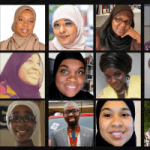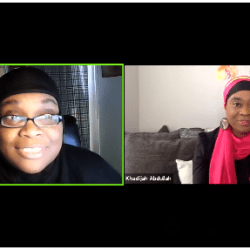By Layla Abdullah-Poulos
Originally Published: About Islam
NEW YORK – For Muslims around the world, `Eid festivities provide a chance to gather for communal worship and revelry. There are large congregational prayers, with crowds that can number in the hundreds and thousands as well as family gatherings and an array of festivals.
Despite the potential for spiritual development and fellowship, for Muslims with social anxiety, celebrating `Eid involves huge challenges to prevent or work through symptoms while participating in prayers and merriments during the holy days.
Social anxiety is the third largest mental health care problem in the US, with millions of suffers. According to the Social Anxiety Institute, people with the disorder are vulnerable to significant emotional distress when:
- Being introduced to other people
- Being teased or criticized
- Being the center of attention
- Being watched while doing something
- Meeting people in authority (“important people”)
- Most social encounters, especially with strangers
- Going around the room (or table) in a circle and having to say something
- Interpersonal relationships, whether friendships or romantic
The potential for distress can affect every facet of one’s life, and the need for understanding and support remains constant.

Social Anxiety in a Muslim Body
Sahar Abdulaziz, coauthor of But You Look Just Fine, explained to AboutIslam how social anxiety could affect Muslim suffers.
“For most Muslims spanning the globe, `Eid is a time of celebration. A time when families and friends–near and far, gather in prayer and gratitude. However, for those suffering from mood disorders, such as social anxiety, also known as ‘social phobia’ the mere thought of being someplace with many people can bring forth an anxiety attack,” she said.
This fear can cause a person to feel physically ill, terrified, along with a host of other debilitating symptoms; making the prospect of attending any social gathering a daunting and frightening experience. As a result, many sufferers opt to stay home, isolating themselves out of fear of triggering an attack.
View Full Article – 868 More Words













